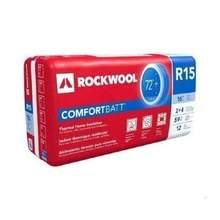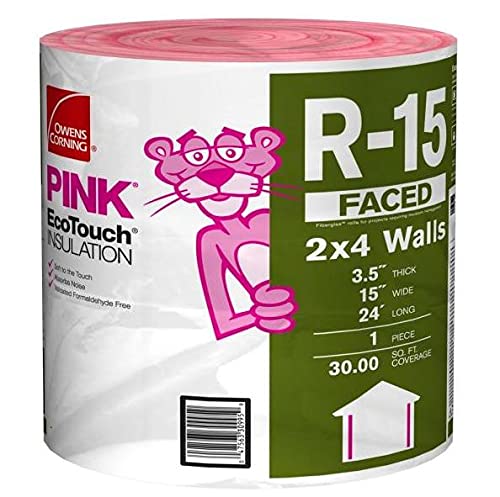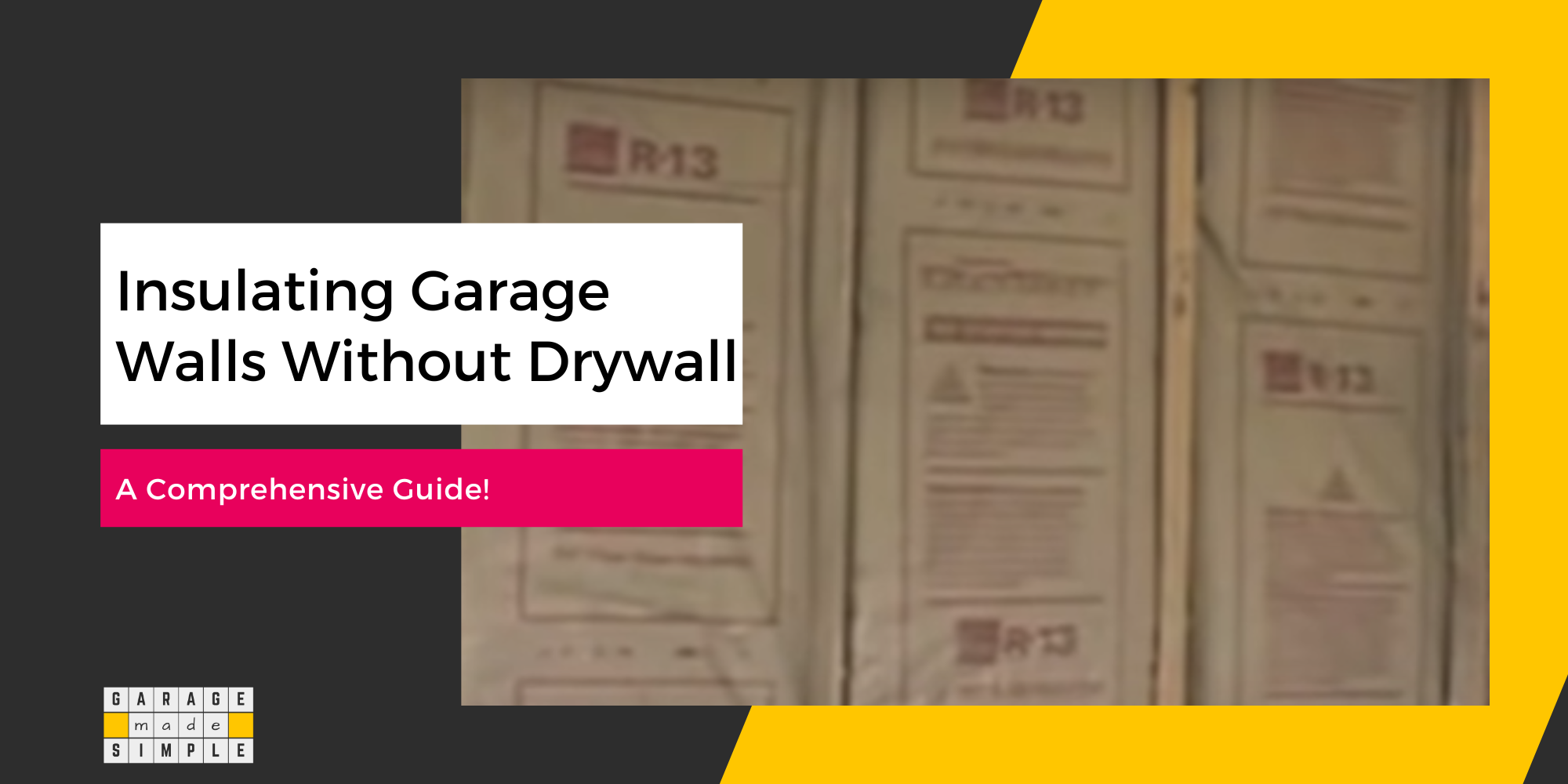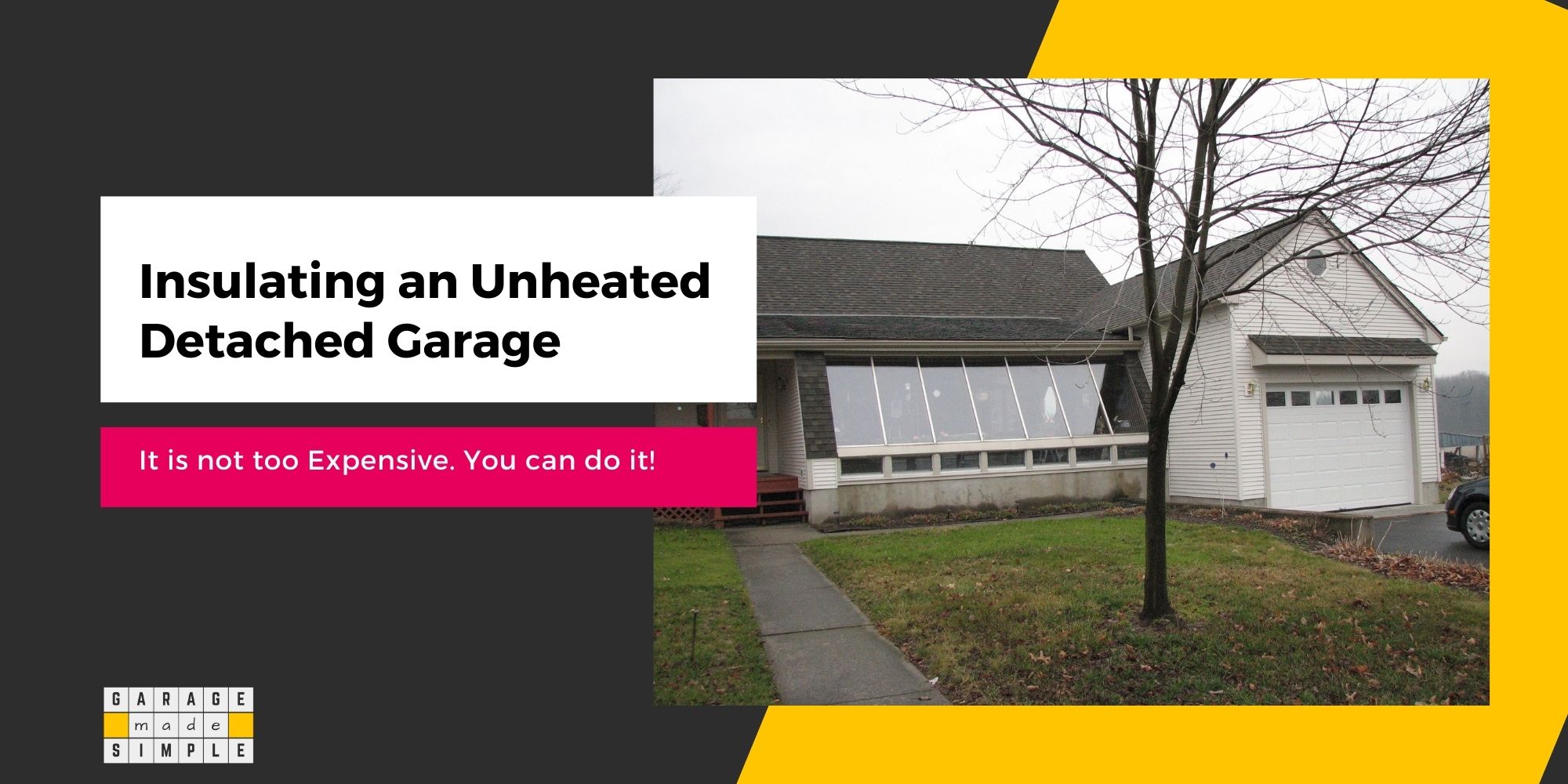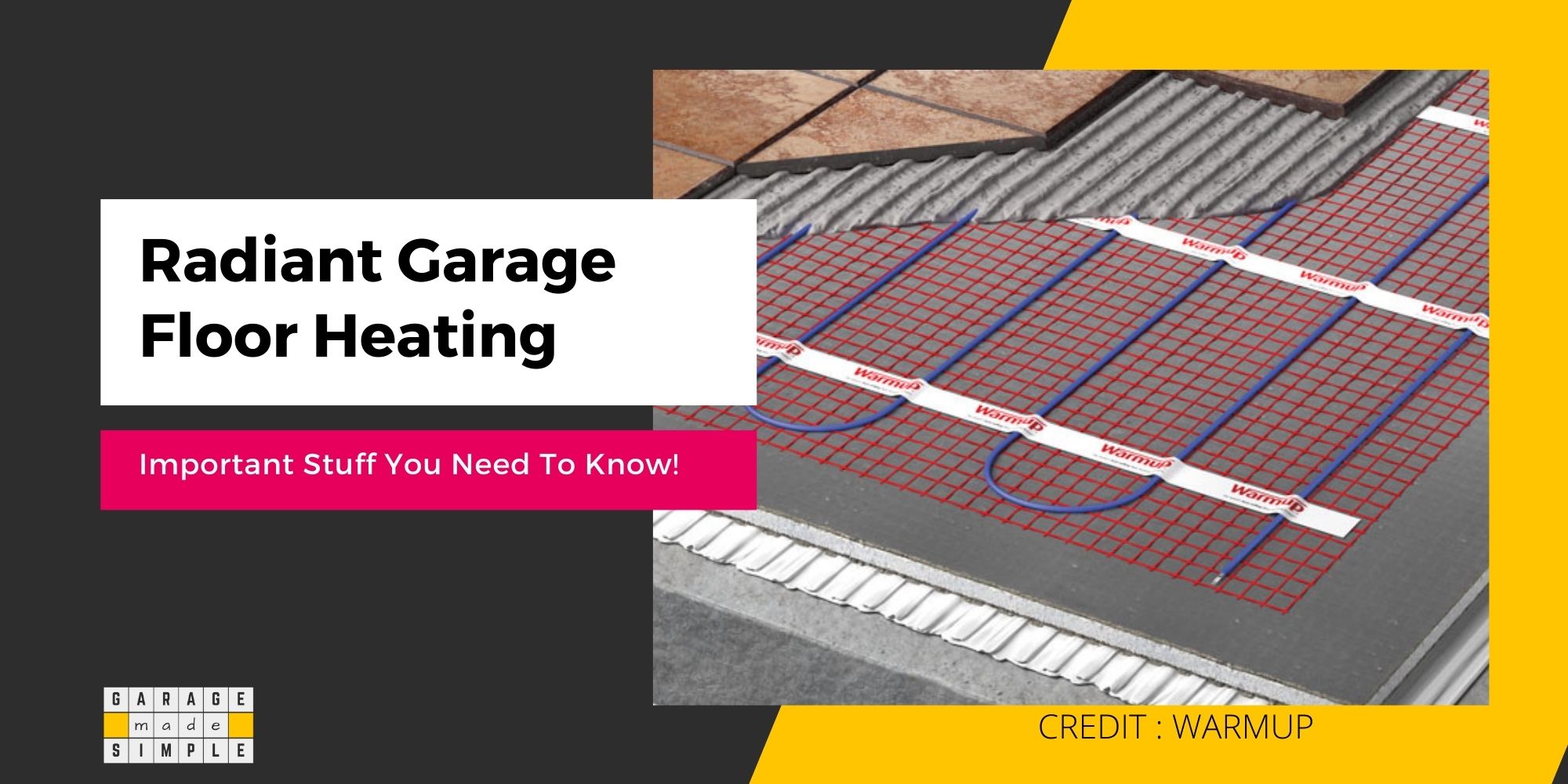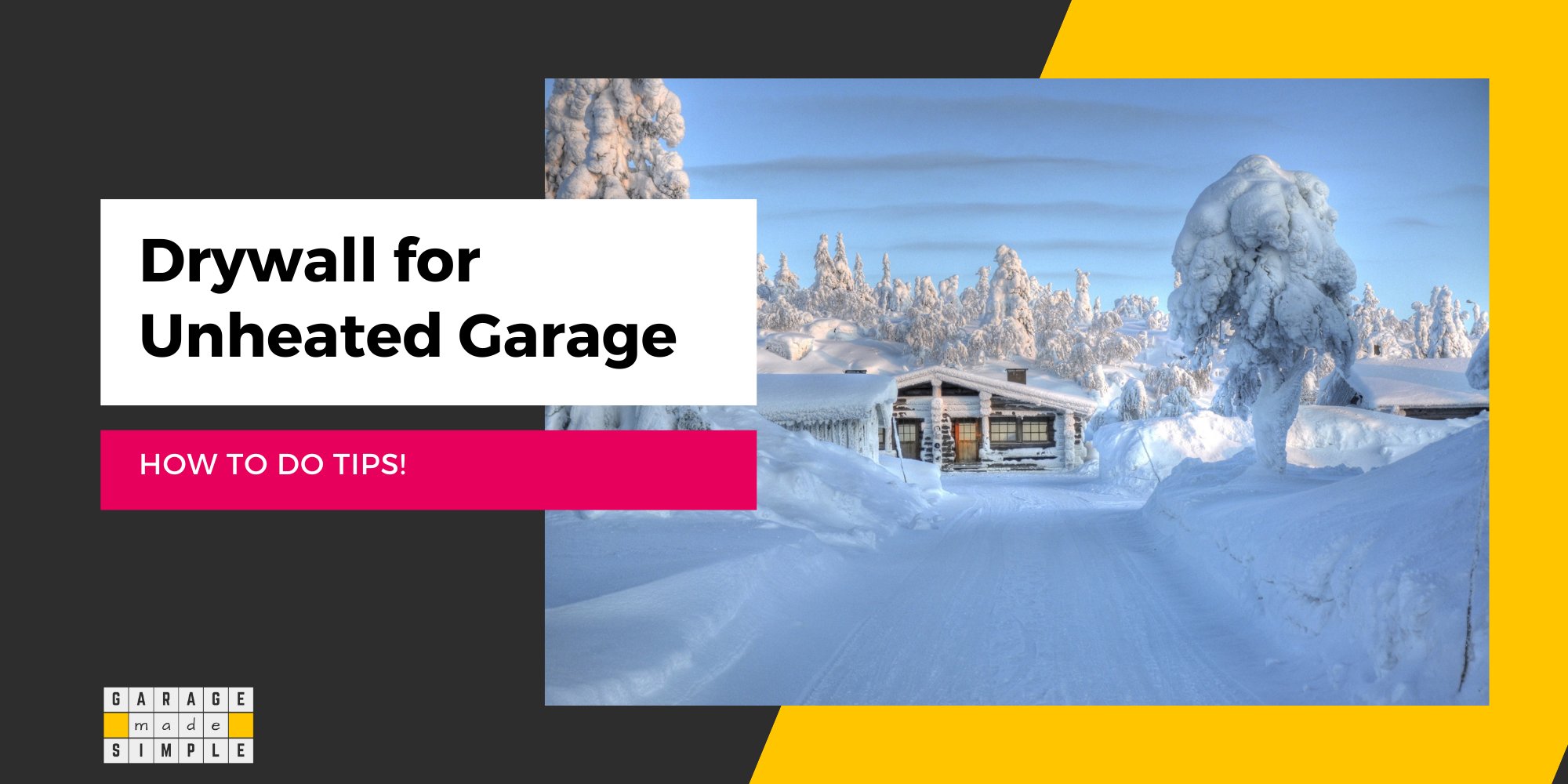ROCKWOOL® vs FIBERGLAS™ Insulation For Garage Walls (Which Is Better?)
garagemadesimple.com is a participant in the Amazon Services LLC Associates Program, an affiliate advertising program designed to provide a means for sites to earn advertising fees by advertising and linking to Amazon.com . The website is also an affiliate of a few other brands.
ROCKWOOL® vs FIBERGLAS™ Insulation
Are you planning to insulate your garage walls? There are a few options but the chances are you will be debating between ROCKWOOL® vs FIBERGLAS™ Insulation. Both the options are very popular and they have their pros & cons. But which is better for garage walls?
I have studied and analyzed published data from both ROCKWOOL’s Comfortbatt® Thermal Batt Insulation and Owens-Corning’s PINK Next Gen™ Fiberglas™ Insulation. Both are equally suitable for insulation of garage walls with 2 X 4 wood studs and both comply with the IBC code.
For the details of the analysis please read the entire post.
All data is based on publicly published documents by the two companies on their respective websites. I have made a conscious effort to not allow any subjectivity creep into the analysis. I believe this will help you make the right choice.
ROCKWOOL Insulation is produced by ROCKWOOL Group, the world’s leading manufacturer of stone wool. Owens Corning is the most well known manufacturer of Fiber Glass Wool Insulation.
In order to to make a fair comparison between the products of the two companies, I have selected the following products
ROCKWOOL’s Comfortbatt® Thermal Batt Insulation and Owens-Corning’s PINK Next Gen™ Fiberglas™ Insulation. Both are recommended for use in interior 2 X 4 wood stud walls.
What is ROCKWOOL® Insulation?
ROCKWOOL® is actually a brand but it has become so popular that it is often used for the entire category of products like stone wool, mineral wool, etc. This is not legally correct.
The quote from the company’s website makes it amply clear.
“Sometimes all it takes is a closer look. See, words like stone wool, mineral wool and rock & slag wool are all great terms used to describe insulation made from stone. But ROCKWOOL on its own is a trademark. In fact, it’s been our name for over 80 years with trademark registrations in over 60 countries globally.”
ROCKWOOL
ROCKWOOL Insulation is made by spinning out fibers from a molten mixture of Basalt Rock & Recycled Slag. Basalt Rock is a volcanic rock found naturally and Slag is a by-product of the steel and copper smelting process.
The fibers are meshed up just like cotton or wool and hence the name ROCKWOOL.
ROCKWOOL insulation has high insulation properties, just like natural wool, because the fibers entrap a gazillion air pockets. ROCKWOOL insulation can be used as it is or be made into rolls or batts for ease of installation.
Note: Please refer to https://www.rockwool.com/group/legal-information/our-trademarks/ for the correct use of their trademark.
What is FIBERGLAS™ Insulation?
According to glass.com
Technically, the word Fiberglass is a trademarked name—owned by Owens Corning—now a proprietary eponym, a brand name that, due to its popularity or significance, has become the generic name for the product it represents.
glass.com
In fact, according to Owens Corning website and documentation they have a trademark on FIBERGLAS™. (Note: ending with 1 S and not 2 SS)
According to Wikipedia
Glass wool, which is one product called “fiberglass” today, was invented in 1932–1933 by Games Slayter of Owens-Illinois, as a material to be used as thermal building insulation.[1] It is marketed under the trade name Fiberglas, which has become a genericized trademark.
Fiberglass insulation works on the same principle as that of natural wool. Glass is drawn out in fibers which are then arranged into a texture similar to natural wool.
Just like ROCKWOOL insulation, it is the gazillion pockets of entrapped air that result in exceptional insulating properties of FIBERGLAS™ insulation.
FIBERGLAS™ insulation can also be used as it is or be made into rolls or batts for ease of installation.
ROCKWOOL® vs FIBERGLAS™ Insulation (Comparable Products)
Both ROCKWOOL and Owens-Corning have a very large range of products to cater to different needs. Here we shall compare the most popular product of each company, designed and marketed for insulating interior walls constructed using wood studs.
In the case of ROCKWOOL the product is Comfortbatt® Thermal Batt Insulation, whereas in the case of Owens-Corning the product is PINK Next Gen™ Fiberglas™ Insulation.
Comfortbatt® is a stone wool insulation product for use in wood and steel framing in both new residential and commercial builds and renovations. Products designed for wood studs come in a range R-values from 14 to 32.
Owens Corning® PINK Next Gen™ Fiberglas™ Insulation is a preformed, flexible blanket insulation. It is produced in R-values from 11 to 49, with thicknesses ranging from 3½ inches to 14 inches.
ROCKWOOL® vs FIBERGLAS™ Insulation (R-Value)
What is R-value?
Heat behaves just like water. Water flows downhill. From the mountain top to the sea. That is, from a higher level to a lower level. Right? Similarly heat flows from a higher temperature level to a lower temperature level. From the warmth of your garage to the freezing cold outdoors.
So when you want to stop the garage heat from escaping to the cold outdoors, you have to use insulation. Some materials, like stone wool or fiberglass wool are much better insulators than say steel or a concrete slab. In other words, some materials have a higher “resistance to heat flow” than others.
R-Value is a measure of the “resistance to heat flow”. The higher the R-Value, greater is the “resistance to heat flow”.
For more information on R-value read my earlier blog post What You Need To Know About R-Value For Garage Insulation.
R-value per inch of thickness
Most construction, especially garage walls use 2 X 4 wooden studs. In fact the actual 2X4 wooden stud’s thickness is 3 1/2″ (not 4″). Both ROCKWOOL and Owen-Corning make rolls and batts which are 3 1/2″ thick so that they fit in perfectly in the stud bay.
ROCKWOOL® Comfortbatt® Thermal Batt Insulation
The 3 1/2″ thick roll and batt for interior walls with wood studs, comes in R-values of 13 & 15. This translates to R-value of 3.71 & 4.29 per inch.
Owens Corning® PINK Next Gen™ Fiberglas™ Insulation
The 3 1/2″ thick roll and batt for interior walls with wood studs, comes in R-values of 11, 13 & 15. This translates to R-value of 3.14, 3.71 & 4.29 per inch.
When it comes to ROCKWOOL® vs FIBERGLAS™ Insulation for interior garage walls using wood studs, the R-Value is exactly the same. It’s just that Owens Corning has a R-11 as well.
ROCKWOOL® vs FIBERGLAS™ Insulation (Fire Resistance)
Both Stone Wool and Fiberglass Wool have a very high resistance to fire and are far superior than say cellulose or natural wool insulation.
Flame Spread Index (FSI) and Smoke Developed Index (SDI) are measured according to ASTM E84 (UL723). Both FSI and SDI are a relative scale in which asbestos-cement board has a value of 0, and red oak wood has 100. (Source: Wikipedia).
ROCKWOOL® Comfortbatt® Thermal Batt Insulation
FSI is 0 and SDI is also 0.
Classified non-combustible when tested in accordance with ASTM E136.
Owens Corning® PINK Next Gen™ Fiberglas™ Insulation
- Unfaced: FSI is <25 and SDI is <50.
- Kraft Faced: FSI is NR and SDI is NR.
- Foil Faced: FSI is 75 and SDI is 150.
Classified non-combustible when tested in accordance with ASTM E136.
A smoke-developed index (SDI) of less than 450 is required by IBC section 803.1.1 at interior walls and ceilings for all surface materials except trim. Both products meet the requirements but ROCKWOOL Insulation is far superior.
ROCKWOOL® vs FIBERGLAS™ Insulation (SUIS)
Safe Use Instruction Sheet (SUIS) Comparison
| ROCKWOOL | Owens-Corning | |
| PRODUCT | Comfortbatt® Thermal Batt Insulation, | PINK Next Gen™ Fiberglas™ Insulation |
| SUIS (Last Revision Date) | 05-MAY-2021 Version: 1.4 | 19-Mar-2021 Version 3 |
| INTENDED USE | Interior and Exterior Applications | Insulation |
| HAZARD IDENTIFICATION | This product may cause temporary mechanical irritation to the eyes and skin. Temporary irritation of the upper respiratory tract (scratchy throat, coughing, congestion) may result from exposure to dusts and fibers in excess of applicable exposure limits. Pre-existing chronic eye, skin and respiratory conditions may temporarily worsen due to exposure to dusts and fibers (see section 8 for safe handling instructions). | May cause temporary skin and mucous membranes itching due to the mechanical abrasion effect of fibers |
| CARCINOGENICITY | Man Made Vitreous Wool Fibers are IARC classified as Group 3 (not classifiable as to their carcinogenicity to humans) | In October 2001, the International Agency for Research on Cancer (IARC) classified fiber glass wool as Group 3,”not classifiable as to its carcinogenicity to humans” |
| PERSONAL PROTECTION | Eyes: Wear safety glasses with side shielding or similar Skin/body: Wear protective gloves / Wear long sleeve shirt and long trousers Respiratory: Ensure proper ventilation / Use appropriate certified respirator when airborne particulates are above exposure limits General hygiene: Wash hands with cold water after handling products / Remove and wash clothes worn during working with products. | Eyes: Wear safety glasses with side shields(or goggles) Skin/body: Wear protective gloves / Wear long sleeve shirt and long pants Respiratory: When workers are facing airborne particulates / dust concentrations above the exposure limits, they must use an appropriate certified respirator General hygiene: Wash hands before breaks and immediately after handling products / Remove and wash contaminated clothing before re-use |
ROCKWOOL® vs FIBERGLAS™ Insulation (Other Features)
Some of the other features that may play a role in your decision making are:
Sound Insulation
The primary purpose of both the products is to provide heat insulation. However, because both have a high degree of air entrapment, they naturally provide fairly good sound insulation as well.
If your prime concern is sound insulation then the two companies have products specially designed for high degree of sound insulation.
You can click on this link to find Acoustic Insulation products from ROCKWELL.
You can click on this link to find Acoustic Insulation products from Owens Corning.
Water & Moisture Resistance
Comfortbatt® Thermal Batt Insulation offers water and moisture resistance. So does PINK Next Gen™ Fiberglas™ Insulation. Both are inert materials and will not be attacked by pests or rot.
ASTM C665
Both products comply with ASTM C665 which is the Standard Specification for Mineral-Fiber Blanket Thermal Insulation for Light Frame Construction and Manufactured Housing.
Bottom Line & Disclaimer
Based on the above data and analysis, I conclude that both ROCKWOOL’s Comfortbatt® Thermal Batt Insulation and Owens-Corning’s PINK Next Gen™ Fiberglas™ Insulation, are equally suitable for insulation of garage walls with 2 X 4 wood studs and both comply with the IBC code.
Thank you very much for reading the post. I do hope you found it informative and useful.

